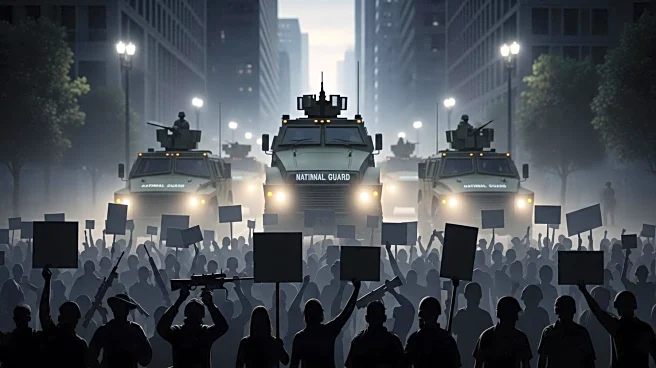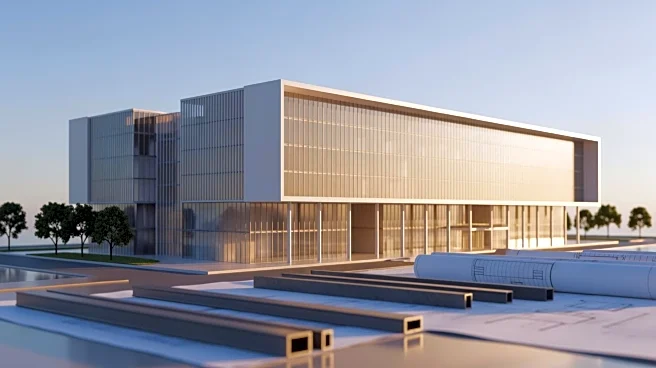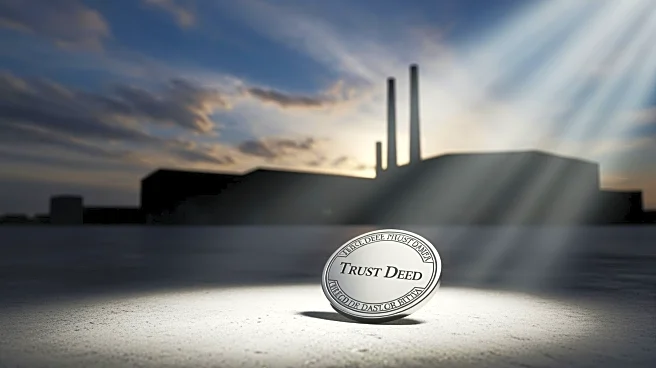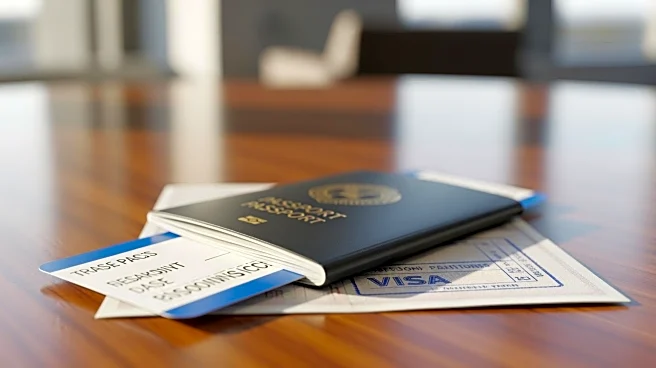What's Happening?
Thousands of demonstrators marched in Washington, D.C., protesting President Trump's federal intervention in the city's policing. The 'We Are All D.C.' protest, organized by local advocates and the ACLU, was one of the largest against the federal presence in the capital. Protesters carried banners demanding an end to what they call the 'D.C. occupation,' as federal troops and agents have been patrolling the city for four weeks. The intervention was justified by the administration as a response to crime and homelessness, despite city officials noting a decrease in violent crime. The presence of federal forces has heightened tensions and led to widespread demonstrations.
Why It's Important?
The federal intervention in D.C. underscores the complex relationship between the federal government and the district, which lacks full autonomy and representation. The situation has sparked a national conversation about the use of federal forces in local jurisdictions, particularly in cities with Democratic leadership. The protests highlight concerns over civil liberties and the potential for federal overreach. The financial burden of the operation, estimated at $1 million per day, also raises questions about resource allocation and priorities.
What's Next?
The emergency declaration that enabled federal control is set to expire soon, which may lead to a shift in the law enforcement approach in D.C. The outcome could set a precedent for future federal interventions in other cities. Political leaders and civil rights groups are expected to continue advocating for local control and the protection of democratic principles.









